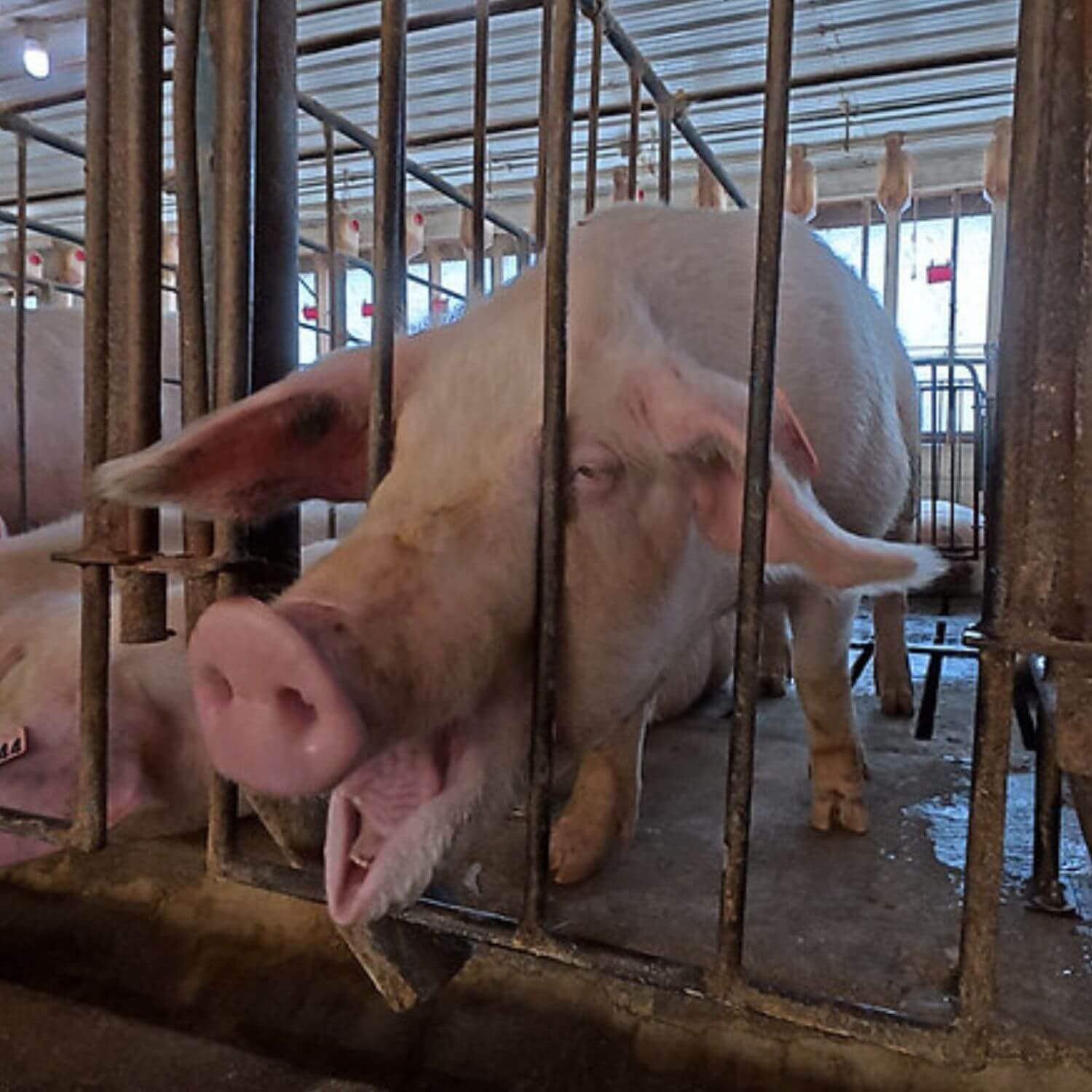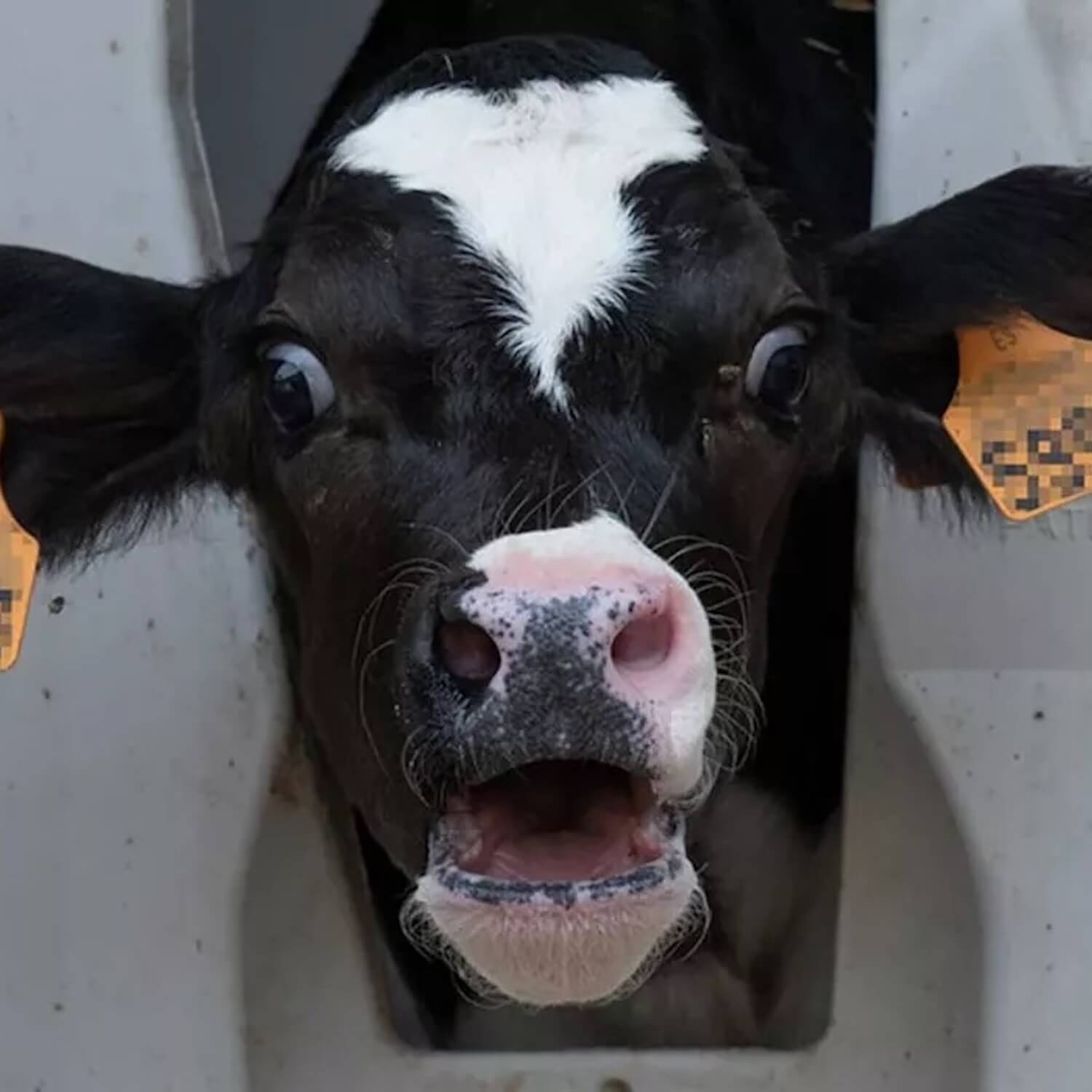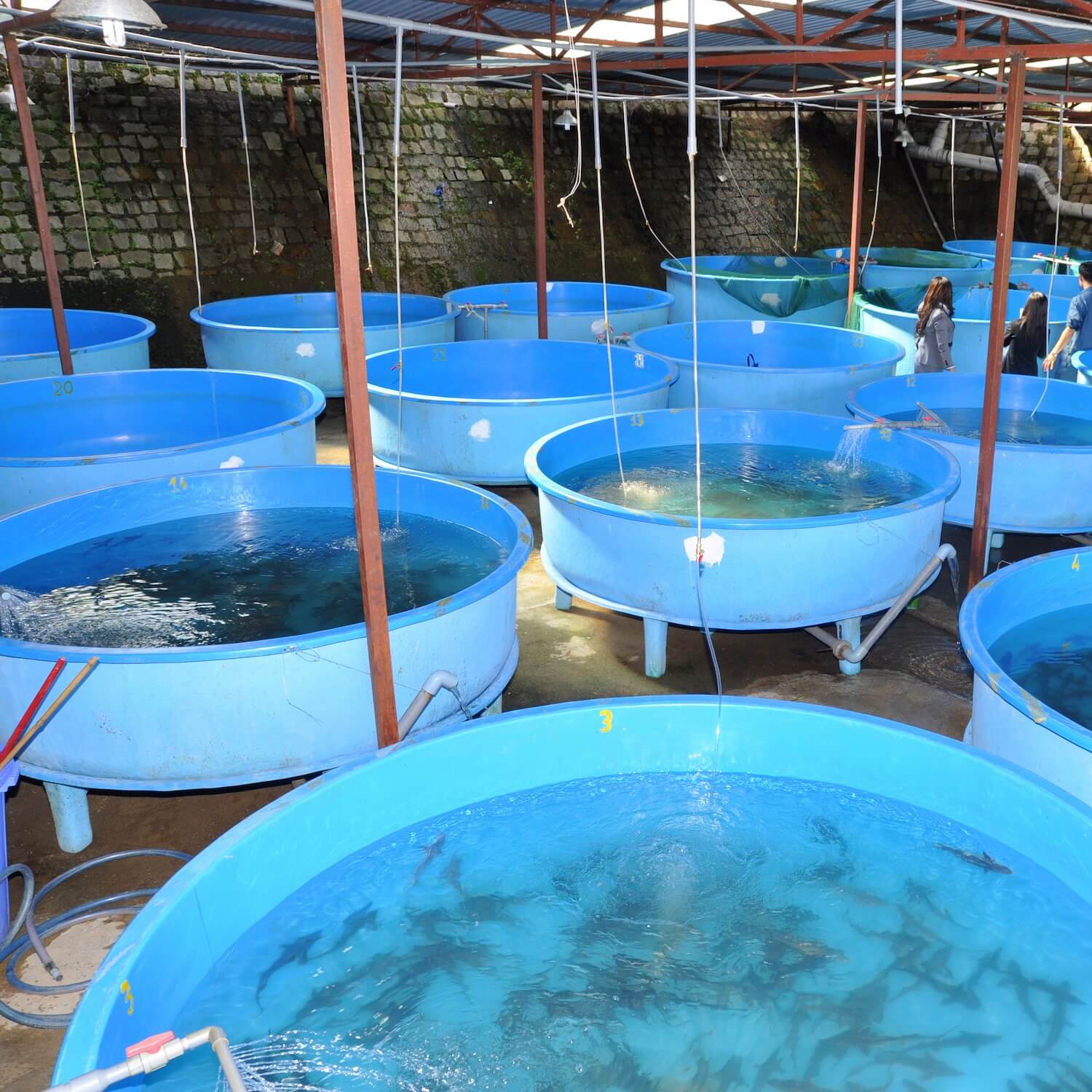Chickens Bred For Their Flesh Are Genetically Predisposed To Suffering, New Investigation Reveals
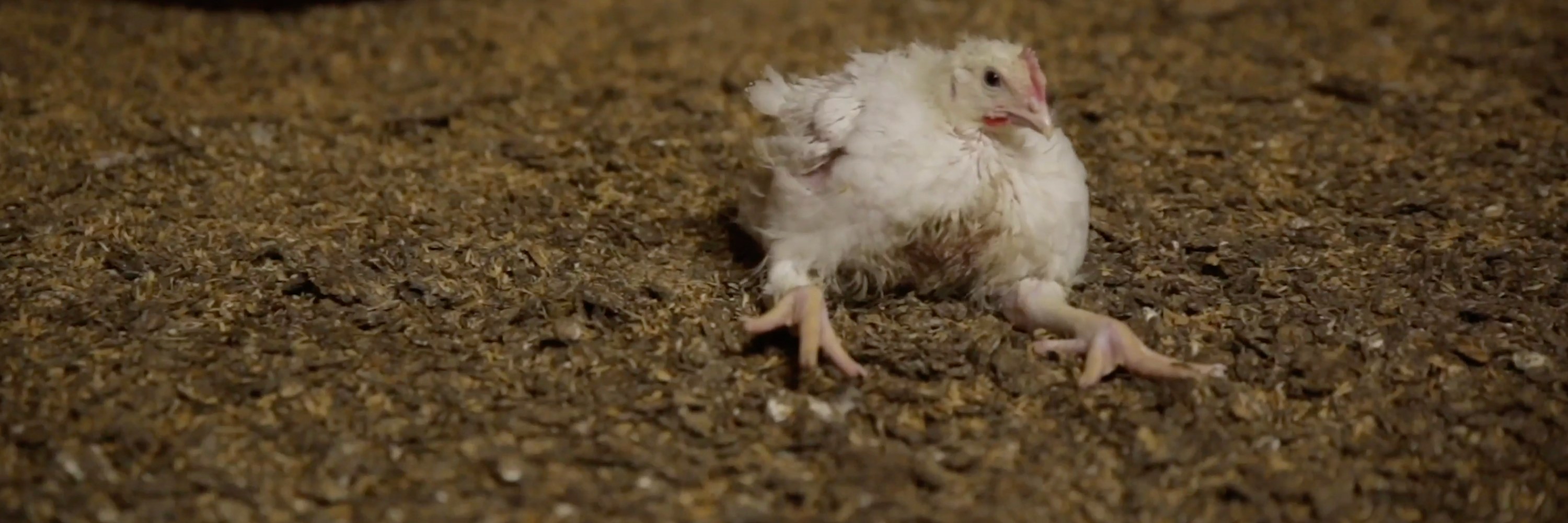
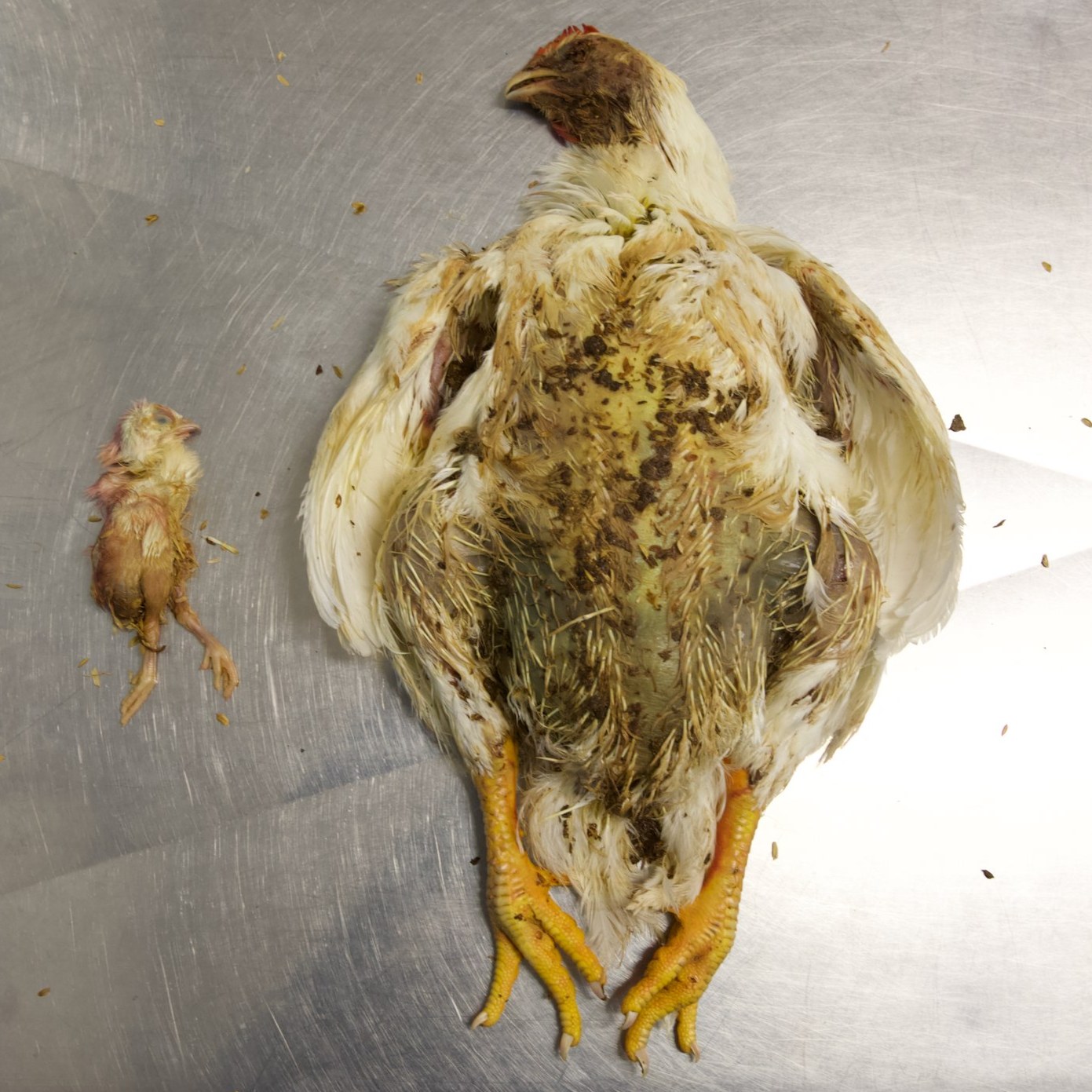
Animal Equality has released a new investigation in Italy revealing how the biological condition of faster-growing chickens condemns them to a life of suffering on intensive farms around the world.
Chickens used for their flesh are a faster-growing type of chickens bred by the animal agriculture industry to accelerate as much as possible the growth of their breasts and thighs.
Chickens in factory farms reach a weight of 2.2kg in just 35 days – almost a 400% increase compared to a century ago.
This process of genetic mutation has significant consequences on the health of the animals, affecting their basic motor skills, blood circulation and breathing, and ultimately condemning them to extreme suffering throughout their short lives.
Around 95% of the chickens bred and killed for their flesh in the UK are fast-growing.
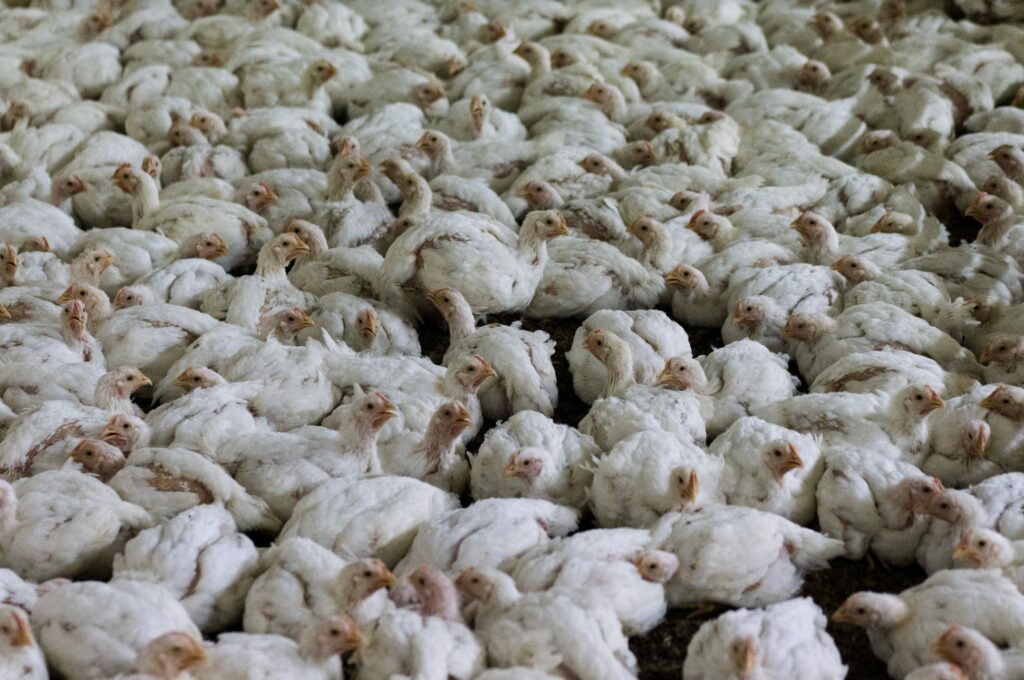
Animal Equality Investigation
Animal Equality’s team in Italy collected seven dead chickens from an intensive farm, one for each week of their life, and analysed their bodies with help from specialist veterinarians. Our team also analysed three fast-growing chickens who are living in a protected and healthy environment on a sanctuary, and compared the findings.
The clinical examinations and X-rays carried out by the veterinarians reveal the contradiction between the Italian animal welfare laws and the suffering of these animals in reality. Legislation in Italy specifically requires farmers to take ‘appropriate measures to ensure the welfare of their animals and to ensure that they are not caused unnecessary pain, suffering or injury’. Despite this, chickens bred for their flesh suffer extremely.
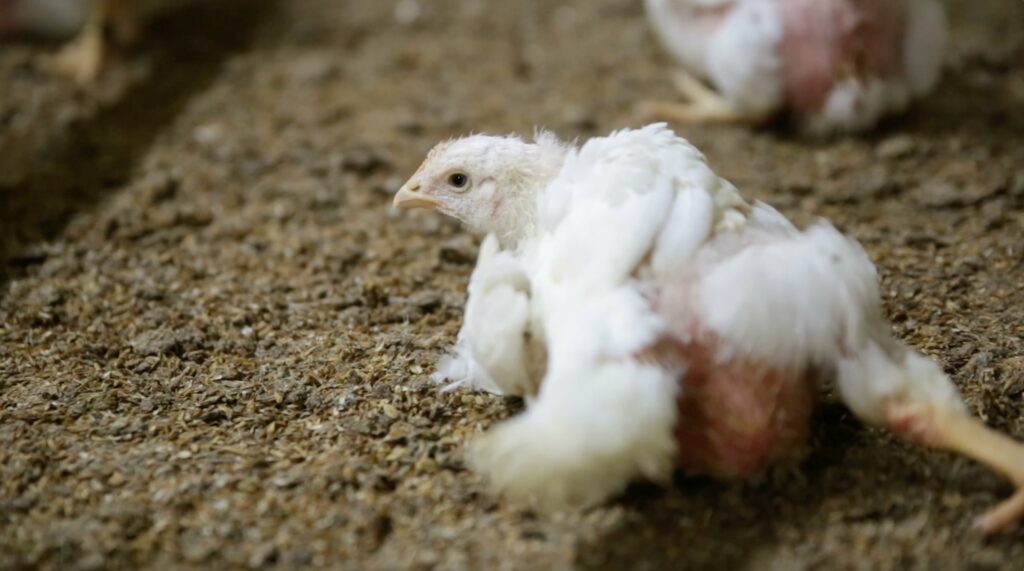
Our Findings
- Unnatural growth and excessive weight of the animals: The X-rays taken show that the growth rate of the chickens examined is very high and visibly noticeable, in particular around the breasts and thighs. Our findings show that the body weight of the animals doubled between the first and second week of life.
- Severe bone damage: X-rays reveal a lack of complete bone calcification (the accumulation of calcium in a body tissue that occurs in the formation of bones), even in the final week of life. Incomplete calcification leads to serious consequences for the animal, such as more frequent bone fractures and deformities, as well as increased pressure on their joints. Bone deformities have been observed both in chickens living in intensive farms and in chickens living in a protected environment and receiving special care. This shows that, no matter how they are treated, their bodies are overloaded by the sheer weight of their muscles. Their bones are unable to bear the weight, which makes fractures easy to occur.
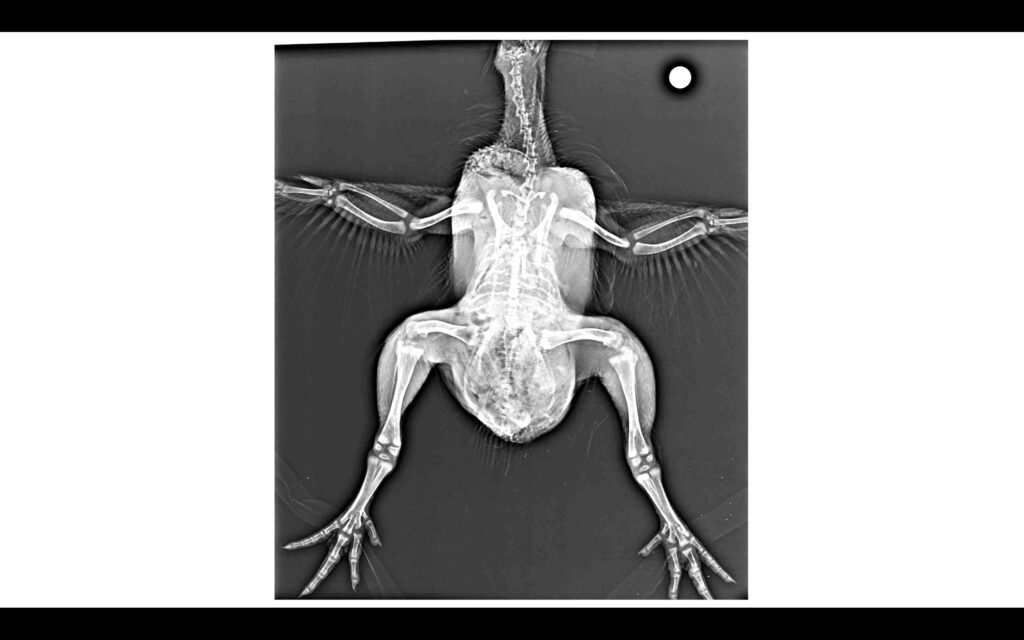
- Cardio-respiratory damage: In the animals examined by our team and by specialists, there was evidence of irritation and sometimes infection on the chest and legs. This is linked to the high level of ammonia in the litter, since chickens are typically forced to constantly rest their chests on the filthy urine-soaked floors. The acidity of the urine and excrement on the ground – which is never cleaned throughout the animals’ lives in an intensive farm – further compromises the chickens’ already weak genetic make-up, leading to loss of feathers and red, raw burns on their chest and feet. In addition, high ammonia levels in the sampled and tested litter lead to respiratory diseases too.
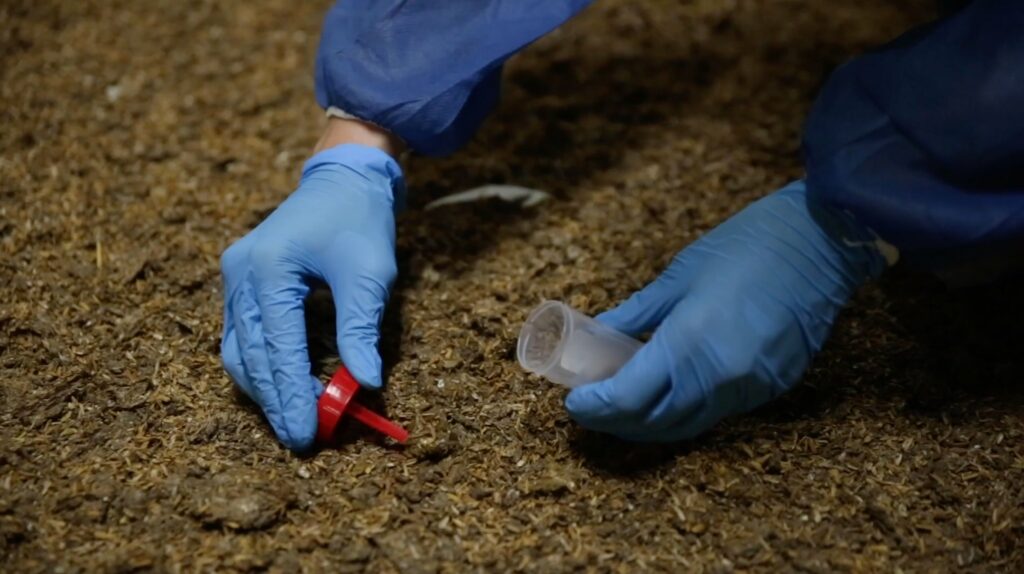
- Damage to internal organs: Despite the respiratory complications caused by exposure to ammonia in intensive farming, an autopsy performed on a chicken in a protected environment – i.e. without exposure to high levels of ammonia – revealed clear signs of pneumonia and excess fluid around the heart, which appears to have caused the chicken’s death. This evidence shows that the respiratory disease came about because of the chickens’ selective breeding, supporting the proposal that it is the extreme breeding itself that predisposes animals to develop life-threatening diseases.
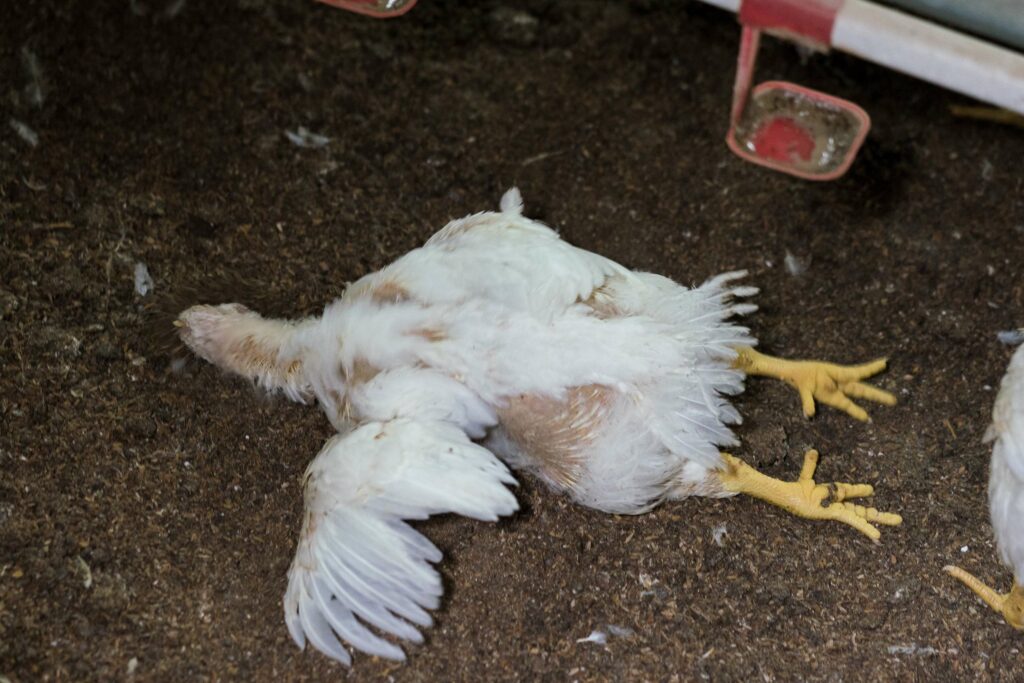
- Internal and external bleeding: The veterinarians involved in this investigation suggested that the animals who suffered from hemorrhage likely died due to impaired respiratory organs, caused by the high level of ammonia. In Italy and in the UK, if a bird is struggling to breath, is small in size, or has other health problems, the farm worker is allowed to intervene by breaking the animal’s neck without using anaesthesia, in a practice called ’emergency killing and culling’.
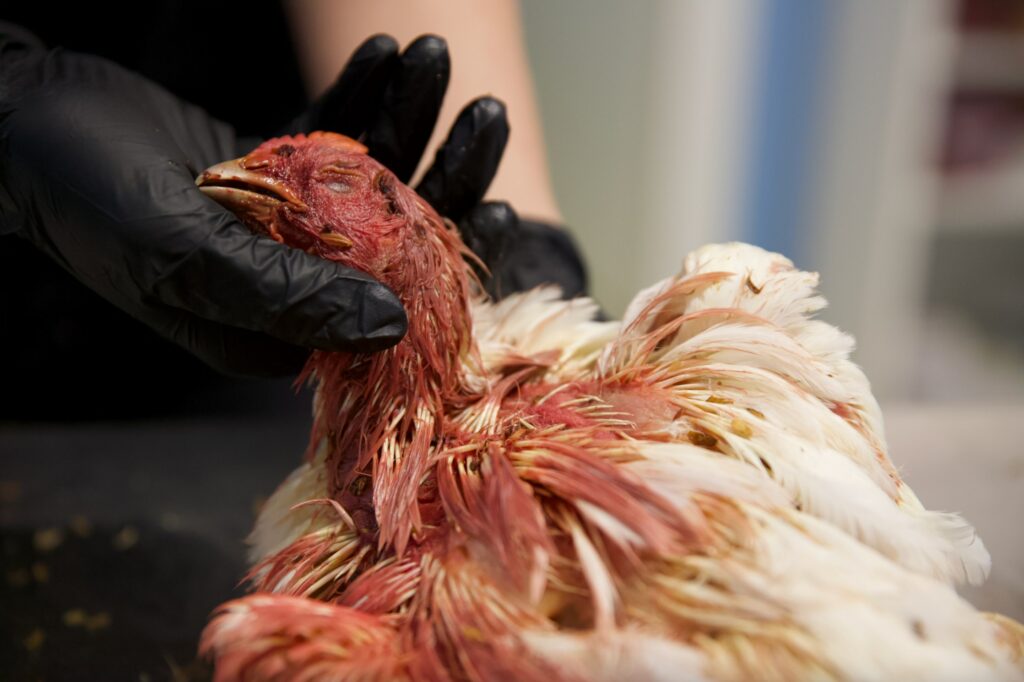
The Conclusions of The Veterinarians
According to the assessments of the veterinarians involved, faster-growing chickens are individuals predisposed to unnatural growth due to genetic selection. Their breeding prevents them from carrying out their most basic, natural behaviours and they are unable to lead healthy, long lives, no matter the environment.
In 2010, the European Food Safety Authority (EFSA) produced documents highlighting the adverse effects associated with rapid weight gain in faster-growing chickens. The EFSA explicitly linked the observed adverse effects, including skeletal disorders, to the excessive growth rates of faster-growing breeds.
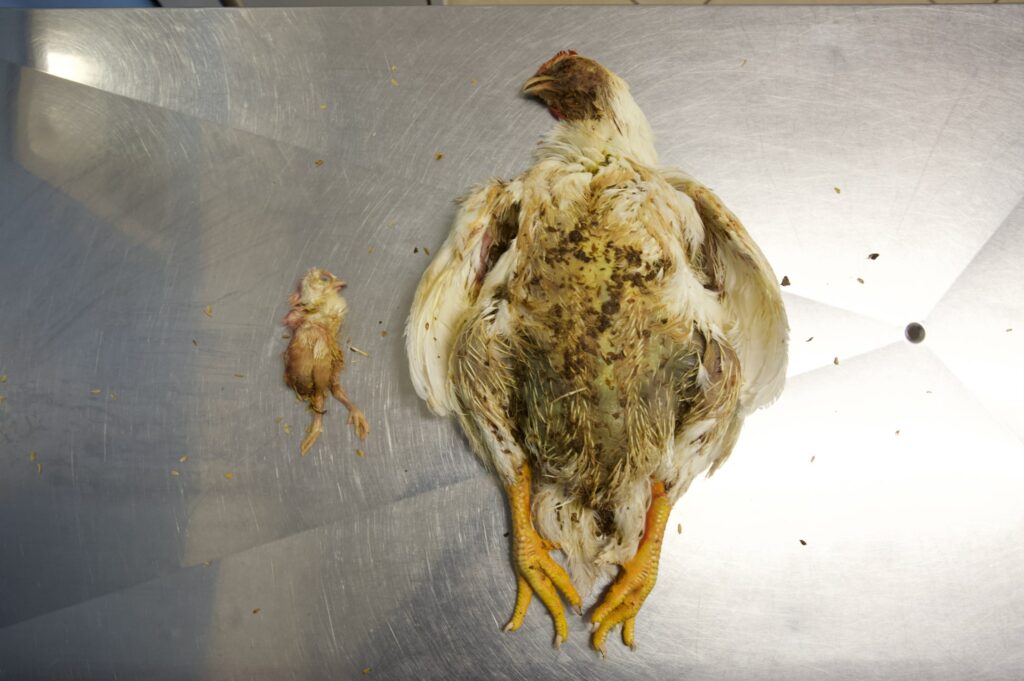
What About British Chickens?
In the UK, over one billion chickens are reared and slaughtered for their meat every year. Of these, 95% are fast-growing.

